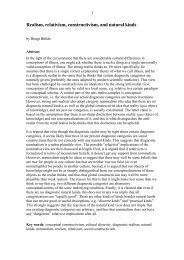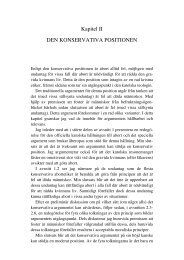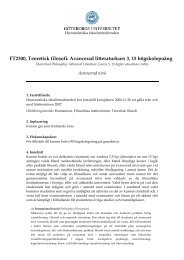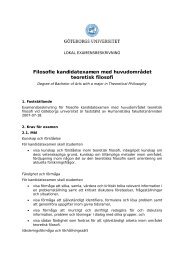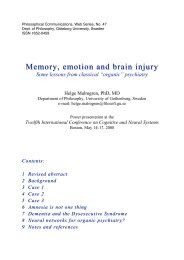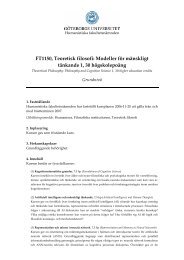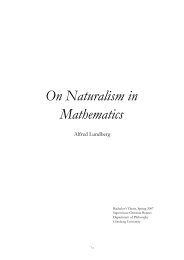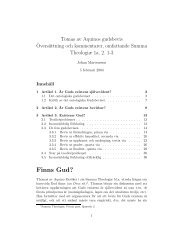Moral Relativism
Moral Relativism
Moral Relativism
- No tags were found...
Create successful ePaper yourself
Turn your PDF publications into a flip-book with our unique Google optimized e-Paper software.
10reasons a person has or does not have is in part a matter of his or her personalconstitution, preferences and history. Thus there is reason to say that faultlessdisagreement on moral matters is possible, so that moral propositions come out as nonobjective.On the other hand, there are a number of reasons why we are very reluctant to saythat a disagreement on a moral matter could be faultless. <strong>Moral</strong> thought has an importantco-ordinating function (see Mackie 1977, ch. 1.10), and this seems to require that moraljudgements be treated as objective and moral disagreements not be regarded as faultfreeand legitimate. For this reason, moral matters cannot be discretionary in the way aestheticmatters are. We are happy to allow faultfree disagreements on whether this or thatlampshade looks better, but much less happy to allow it on the question of whethertorture is ever permissible. The reason for this is the co-ordinating function of moralthought. <strong>Moral</strong> judgements are practical and therefore guide our actions. But unlike otherareas of practical deliberation, moral thought specifically concerns practical decisionsthat affect, or are affected by, others. If moral judgements were of the discretionaryvariety, then moral judgements could not coordinate. Thinkers would differ in theirjudgement of what ought to be done and there would be no reason to search for, andcorrect, any mistake. There would be no pressure ever to accept any inconvenient moralviews, but such pressure (at least on some people) seems to be required for social coordinationof action.There is, therefore, a political reason for giving moral judgements objective status.Nevertheless, we cannot just conclude, for political reasons, that moral propositions areobjective because after all, we still need to make epistemological sense of moral thought.The world needs to play ball. The rule, if any, that moral disagreements indicate errorneeds to harmonise with our rules for justifying moral norms, our methods of makingmoral judgements. However, there is a tremendous variety of different such methodsacross different cultures and groups. Moreover, in some cultures, and on some issues,there is notorious controversy surrounding the principles by which moral issues should bedecided.The key to understanding the situation is the fact that the political reasons for treatingmoral concepts as objective only have force within a certain sphere, i.e. within a certainmoral community. The community of those with whom we aim to coordinate our actionsfor mutual benefit is relatively restricted. The community of thinkers with whom we cancommunicate extends much further than this restricted moral community. It is the factthat moral community and the wider community of thinkers do not coincide whichcreates the mismatch between, on the one hand, our tendency to treat moral questions asobjective but on the other hand failing to see how they could be objective because wecan’t make epistemological sense of it.Let’s consider, for one moment, a range of concepts that seem to be constitutivelyobjective: the concepts involved in the description of scientific experiments. It seems tobe part of basic scientific practice that disagreements at least about experimental dataalways count as an indication of error. If two scientists conduct the same experiment butthey come to incompatible conclusions then some mistake must have been made incarrying out the experiment. In more familiar terms: scientific experiments must berepeatable. The repeatability of experiments seems to have a fundamental role in that



